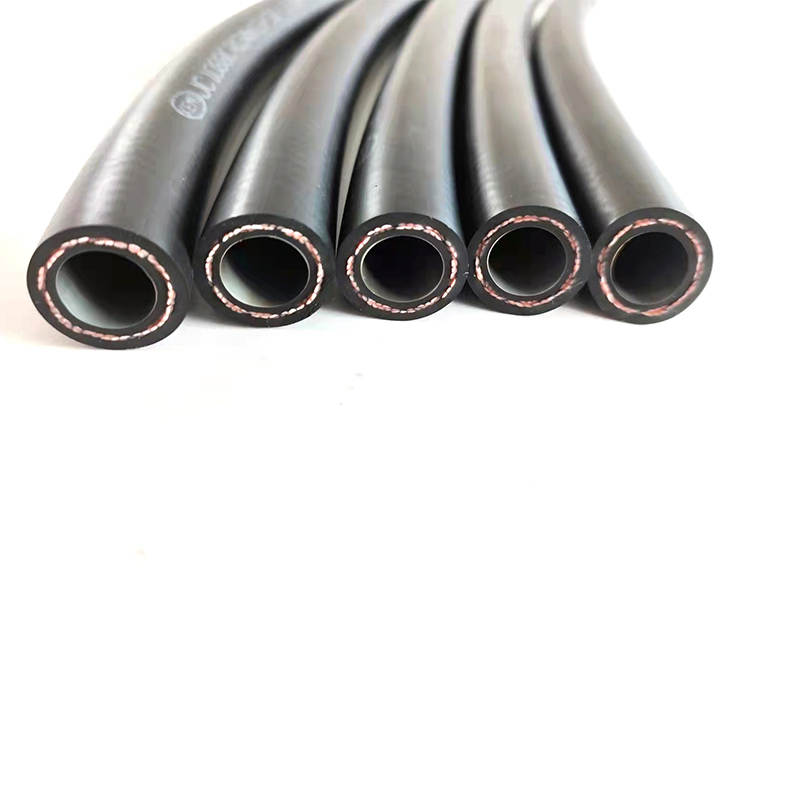flexible ac refrigerant hose
Nov . 30, 2024 20:28 Back to list
flexible ac refrigerant hose
The Advantages of Flexible AC Refrigerant Hoses
In the realm of air conditioning systems, the efficiency and reliability of components can make a considerable difference in overall performance. One such component that often goes unnoticed but plays a crucial role is the refrigerant hose. Flexible AC refrigerant hoses have gained popularity among HVAC professionals and manufacturers alike due to their numerous advantages. In this article, we will explore the importance of flexible AC refrigerant hoses, their construction, benefits, and applications.
Understanding Refrigerant Hoses
Refrigerant hoses are vital in the transport of refrigerant between various components of an air conditioning system, including the compressor, evaporator, and condenser. These hoses must withstand high pressures and corrosive environments, making the choice of material and design paramount. Flexible refrigerant hoses are typically made from a combination of rubber and textile reinforcement, providing the necessary flexibility without compromising strength and durability.
Key Benefits of Flexible AC Refrigerant Hoses
1. Enhanced Flexibility The primary benefit of flexible AC refrigerant hoses is their flexibility, which allows for easier installation and routing. Unlike rigid pipes, these hoses can navigate around obstacles and tight spaces, minimizing the need for additional fittings and reducing potential leak points. This is particularly important in retrofitting older systems where space constraints may pose challenges.
2. Vibration Resistance HVAC systems are often subjected to vibrations during operation. Flexible hoses can absorb some of these vibrations, reducing the stress on connection points and extending the lifespan of the entire system. This resistance to vibration is particularly beneficial in commercial and industrial applications where equipment operates continuously.
3. Durability High-quality flexible AC refrigerant hoses are designed to handle extreme temperatures and pressures. Their construction often includes layers of reinforcement materials that help prevent kinking, cracking, and wear over time. This durability ensures that the hoses can maintain their integrity and efficiency even in demanding environments.
flexible ac refrigerant hose

4. Leak Prevention One of the significant causes of refrigerant loss in air conditioning systems is leaks. Flexible hoses, when properly installed, create secure connections that reduce the risk of leaks. Many modern flexible hoses also come with built-in leak detection features, allowing for easier monitoring and maintenance.
5. Cost-Effective While the initial investment may be slightly higher than traditional rigid pipes, flexible hoses can save money in the long run. Their ease of installation and maintenance reduces labor costs, and their durability minimizes replacement and repair expenses. Additionally, improved energy efficiency can lead to lower operational costs for the entire HVAC system.
Applications of Flexible AC Refrigerant Hoses
Flexible AC refrigerant hoses find applications across a wide range of industries. In residential air conditioning systems, they are commonly used for connecting indoor and outdoor components seamlessly. In commercial settings, such as shopping malls or office buildings, these hoses allow for efficient routing in complex ductwork and tight areas.
Additionally, flexible hoses are essential for mobile or portable air conditioning units, where rigid piping is impractical. They enable manufacturers to create compact units that are easy to transport and set up. Furthermore, in industrial applications, flexible hoses facilitate the efficient functioning of cooling systems in factories and server rooms, where reliable temperature control is crucial.
Conclusion
Flexible AC refrigerant hoses are a vital yet often overlooked component of HVAC systems. Their flexibility, durability, and resistance to environmental factors contribute significantly to the efficiency and longevity of air conditioning systems. By investing in high-quality flexible hoses, HVAC professionals can ensure better performance, reduced maintenance issues, and enhanced customer satisfaction. As technology advances and the demand for energy-efficient solutions grows, the role of flexible AC refrigerant hoses is likely to become even more prominent in the industry's future. Embracing this modern solution can lead to improved comfort, efficiency, and cost savings, ultimately benefiting both businesses and consumers alike.
